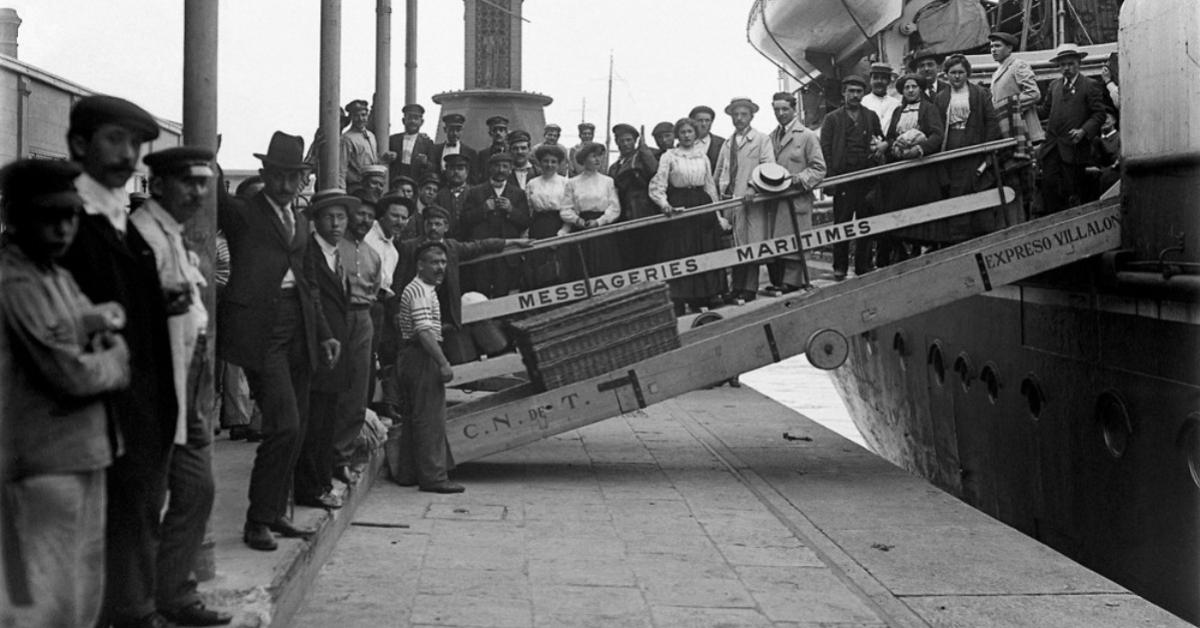
The Other Immigration Question: Should People from Wealthy Countries Migrate to Poorer Ones?
The immigration debate has polarized societies across the Western world. Objectors assert that the influx of migrants has corroded social relations, and defenders argue that immigrants release a dose of entrepreneurial dynamism. Debates will persist because it’s unlikely that people can be discouraged from migrating to rich countries in the West. Migrants will continuously flock to places like America and Canada, since they provide better opportunities.
Besides offering immigrants more options to build wealth, rich countries in Europe and North America also attract many through their well-endowed welfare systems. Researchers contend that welfare acts as a magnet that lures migrants to prosperous countries. The allure of welfare is so potent that limiting benefits can reduce the net flow of immigrants to host countries. Also, benefitting from higher incomes in developed countries affords immigrants the opportunity to experience a superior quality of life.
Economist Michael Clemens has opined that migration to the United States is the best strategy to lift Haitians out of poverty. For many in the developing world, migrating to a stable country with effective institutions is the most plausible avenue for self-advancement. Migrating can also lead to favorable health outcomes and improved well-being because developing countries have inferior health systems. Not only is healthcare better in rich countries, but in Europe and North America people are more likely to receive subsidized healthcare.
Living standards are substantially better in Western countries, so it’s understandable why people would endanger their safety to enter America or Europe. But perhaps the current debate is misguided. Instead, policy makers should be making the case for people in Western countries to migrate to the developing world. Human capital is pivotal to economic growth, and poorer countries suffer from lower levels of human capital.
However, human capital is not the accumulation of information but rather the application of expertise. Human capital refers to know-how, and transitioning to developed status will require developing countries to acquire first world know-how. Western Europeans had a human capital advantage prior to the colonial era, yet despite the rise of East Asian countries and offshoots of England like the United States, Canada, Australia, and New Zealand, there is still a great gap in human capital formation between the West and the rest of the world.
A study by Ghanaian academic William Baah-Boateng states that economic underperformance in Africa can be remedied by strengthening its human capital base. Baah-Boateng posits that policy makers and the private sector should invest in infrastructure to revolutionize African education systems. This suggestion is fair; however, the World Bank in a controversial report noted that in Africa, teachers and students alike operate below par. The report shockingly reveals that in Africa large shares of educators fail to master the curricula of the pupils they are instructing; basic pedagogical knowledge is minimal, and good teaching practices are rare.
Inept teachers must be trained, but the low-quality of education in developing countries is a global crisis, and some are proposing that institutions in developing countries employ high-quality teachers from developed countries. Throughout history, countries have improved their human capital by courting immigrants from successful countries. From 1851 to 1920, Brazil imported over 3.5 million Europeans and immigrants from other regions.
Immigration was a major boost to Brazil’s economy. Research shows that the growth of human capital was robust in places with high concentrations of immigrants. Even today, economic performance is stronger in states that imported large shares of immigrants. Likewise, Argentina equally benefitted from the expertise of European immigrants during the age of mass migration. From 1870 to 1930, Argentina was the destination of roughly seven million immigrants, mostly from Europe.
Back then, Argentina maintained a liberal immigration policy to recruit workers and populate the country. German immigrants became a distinguished group and are recognized for their contributions to entrepreneurship, education, and health.
More importantly, for the United States, studies that observe a link between immigration and innovation are really exploring the exploits of people from Europe.
Crucial to the story of immigrant human capital is that Japan, the first non-Western country to industrialize, established the Iwakura Mission in 1871 to study Western institutions and apply them to a Japanese context. More recently, China has reaped the fruits of institutional copying in the venture capital sector by adopting Western business practices. Undoubtedly, appropriating relevant foreign know-how can accelerate economic performance in developing countries.
As such, poor countries in the developing world can either adopt a liberal immigration policy to attract high-quality human capital or engage in ruthless institutional copying to achieve higher living standards. The problem is not that people from poorer countries are migrating to the West, but that few Westerners relocate to poor countries with their know-how and institutions.



